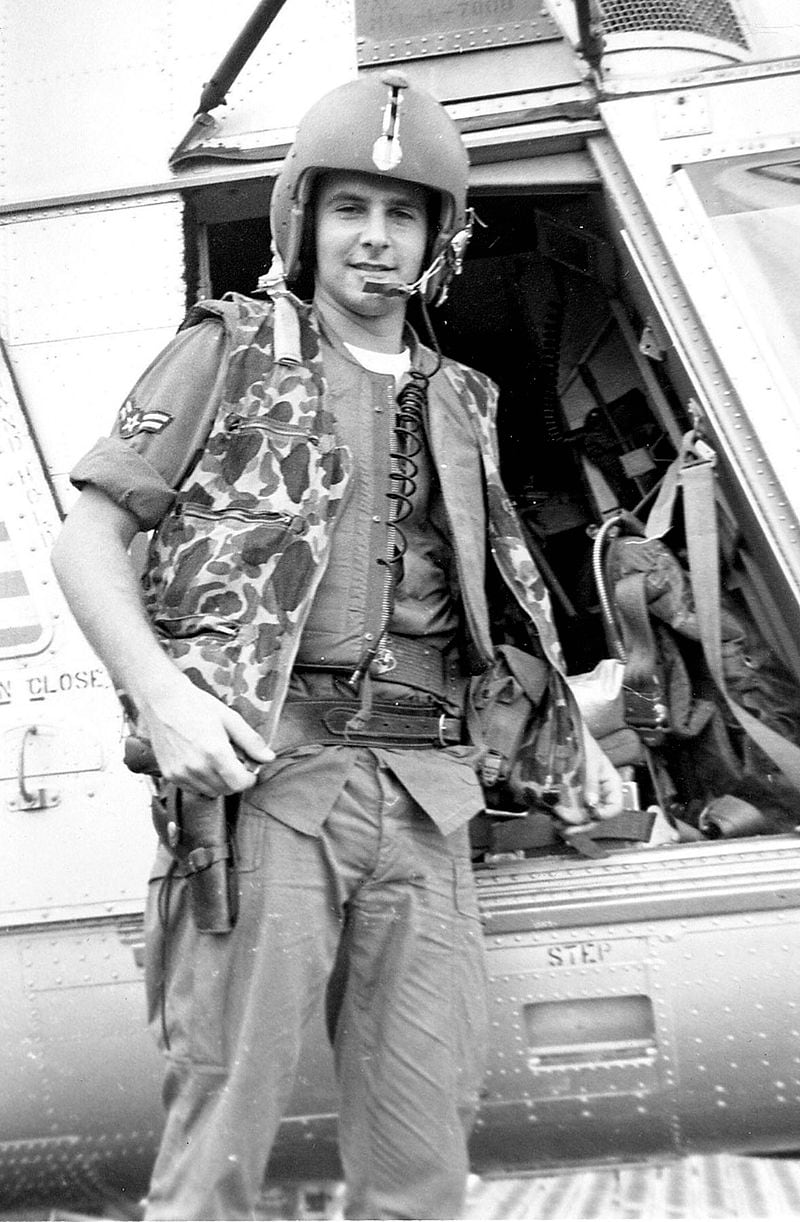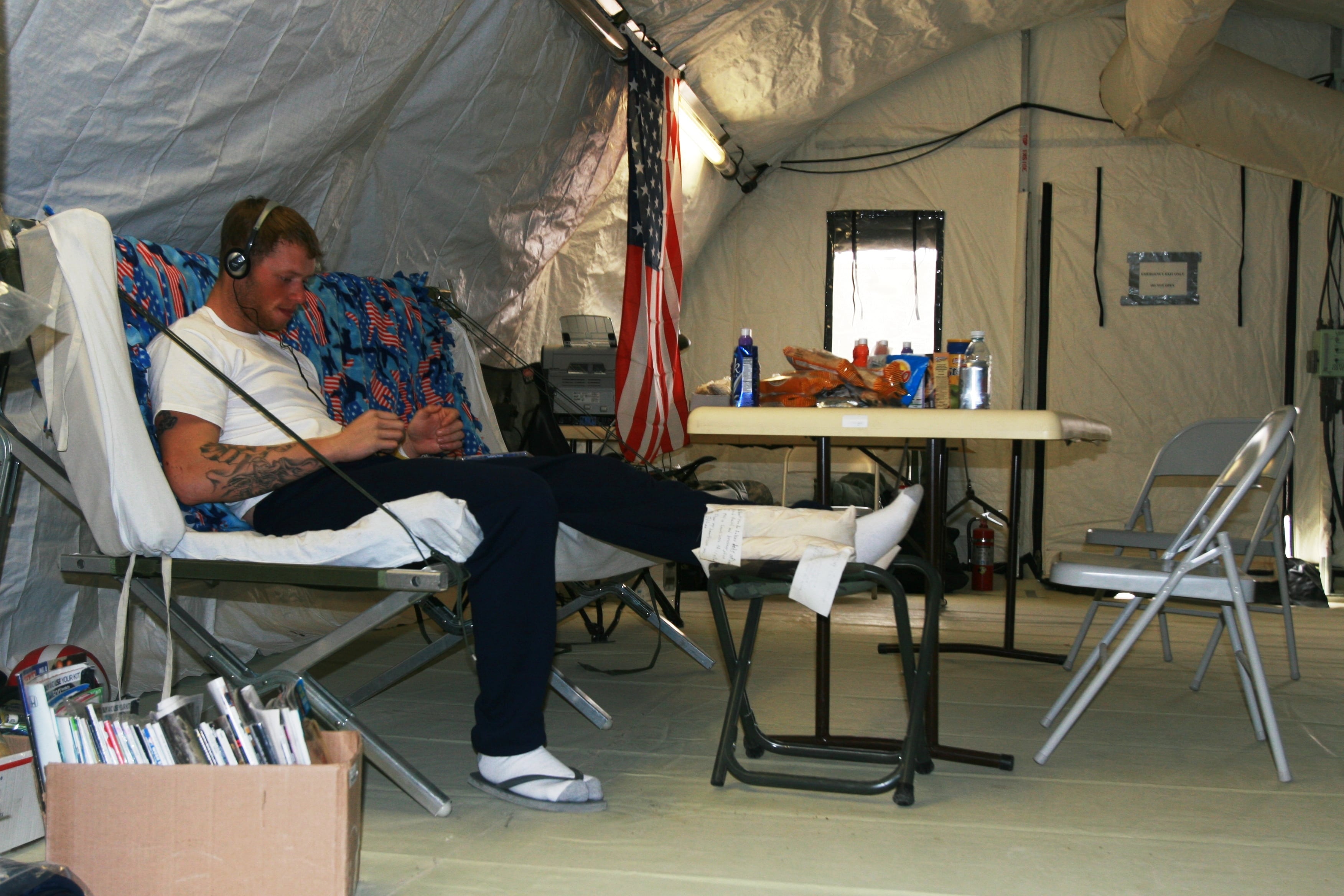Director Todd Robinson’s newest fact-based film, “The Last Full Measure,” chronicles a more than 30-year battle to recognize one Air Force pararescueman’s heroism with the nation’s highest award for combat valor, the Medal of Honor.
Airman First Class William H. Pitsenbarger, played in the film by Jeremy Irvine, was assigned to the 38th Aerospace Rescue and Recovery Squadron on April 11, 1966, when a call for a medevac came in to assist soldiers from the Army’s 1st Infantry Division positioned near Cam My, Republic of Vietnam.
As the helo approached the combat zone, it became apparent the landscape and intensity of the fighting would prevent a traditional extraction. Pitsenbarger unhesitatingly climbed into the rescue hoist, soaring through the air from over 100 feet above the jungle floor before being lowered to the ground and getting to work.
”Pits” managed to evacuate nine soldiers before it was his turn to be lifted to safety, but with each opportunity, he refused. For an hour and a half, he repeatedly exposed himself to heavy enemy fire while making improvised splints and stretchers out of surrounding vegetation, and retrieving ammunition from mortally wounded soldiers to distribute it to those still in the fight.
Pitsenbarger was fatally shot by a sniper when the perimeter was breached — part of the staggering 80 percent of Americans on the ground who were casualties that day. When a recovery team reached his body, they found the deceased 21-year-old still clutching a med kit in one hand and a rifle in the other.
Pits would be posthumously awarded the Air Force Cross for his efforts during Operation Abilene, kicking off a 30-plus-year push to upgrade the award by those who either served alongside Pitsenbarger or were saved by him.

And while the April 1966 battle inevitably plays a significant part in Todd Robinson’s story, it’s this post-war fight that is at its heart. The director first got the idea to structure the feature film around the post-war bureaucratic struggle following a series of interviews with surviving veterans that were featured in a short documentary on the same topic.
It was their unwavering dedication to getting Pitsenbarger the recognition he deserved, Robinson told Military Times, that was a testament to what he meant to the soldiers he saved.
“It was a phenomenal experience listening to these men, in some cases for the first time, recount what happened to them,” Robinson said.
“I was privileged to sit there and not only experience that, but also witness their emotion, which was intensely deep and sad. And when you’re sitting in a restaurant and there’s a 60-year-old man sobbing in front of you... it took a lot of guts for them to do that.”
Those individual accounts in Robinson’s film, which takes place primarily in 1999 (with occasional flashbacks to 1966), are portrayed by Pitsenbarger’s fictionalized best friend and fellow PJ, Master Sgt. Thomas Tulley (William Hurt), his parents (Christopher Plummer and Diane Ladd), and other surviving veterans of the battle — played by Samuel L. Jackson, Peter Fonda, and Ed Harris.
RELATED

At the helm of the film’s battle is up-and-coming Pentagon staffer Scott Huffman (Sebastian Stan), who reluctantly takes on the task of investigating the circumstances of that hellish day. But after speaking to Pitsenbarger’s parents and fellow service members, Huffman’s disinclination gives way to a steadfast determination to do right by Pits and those he touched.
“It’s a story of loss and regret, and examining that on a personal level over and over again,” Robinson told Military Times. “I really wanted to focus on these men’s individual stories and how their interactions with Pitsenbarger, who paid the ultimate sacrifice on their behalf, impacted them.”
The film, which takes its name from an excerpt of Abraham Lincoln’s Gettysburg Address, suffers at times from a choppy narrative and forced Hollywood sentiment, but these minor imperfections are overcome by a harrowing true story, a well-written script, and compelling acting — all of which keep the film’s message of sacrifice and brotherly love on course and make it a well worth a trip to the movies.
Ultimately, Pitsenbarger’s sacrifice — for men he had never met — was finally recognized on Dec. 8, 2000, at a ceremony at the U.S. Air Force Museum in Dayton, Ohio, where his parents were presented the Medal of Honor on his behalf.
Much like the real-life ceremony, the film’s version is undeniably emotional and an event all should appreciate.
“The Last Full Measure” is now playing in theaters nationwide. Watch the trailer below.
J.D. Simkins is the executive editor of Military Times and Defense News, and a Marine Corps veteran of the Iraq War.
Tags:
The last full measurethe last full measure moviethe last full measure pitsthe last full measure pitsenbargerthe last full measure todd robinsonpitsenbarger vietnampitsenbarger medal of honorpitsenbargeroperation abileneIn Other News















